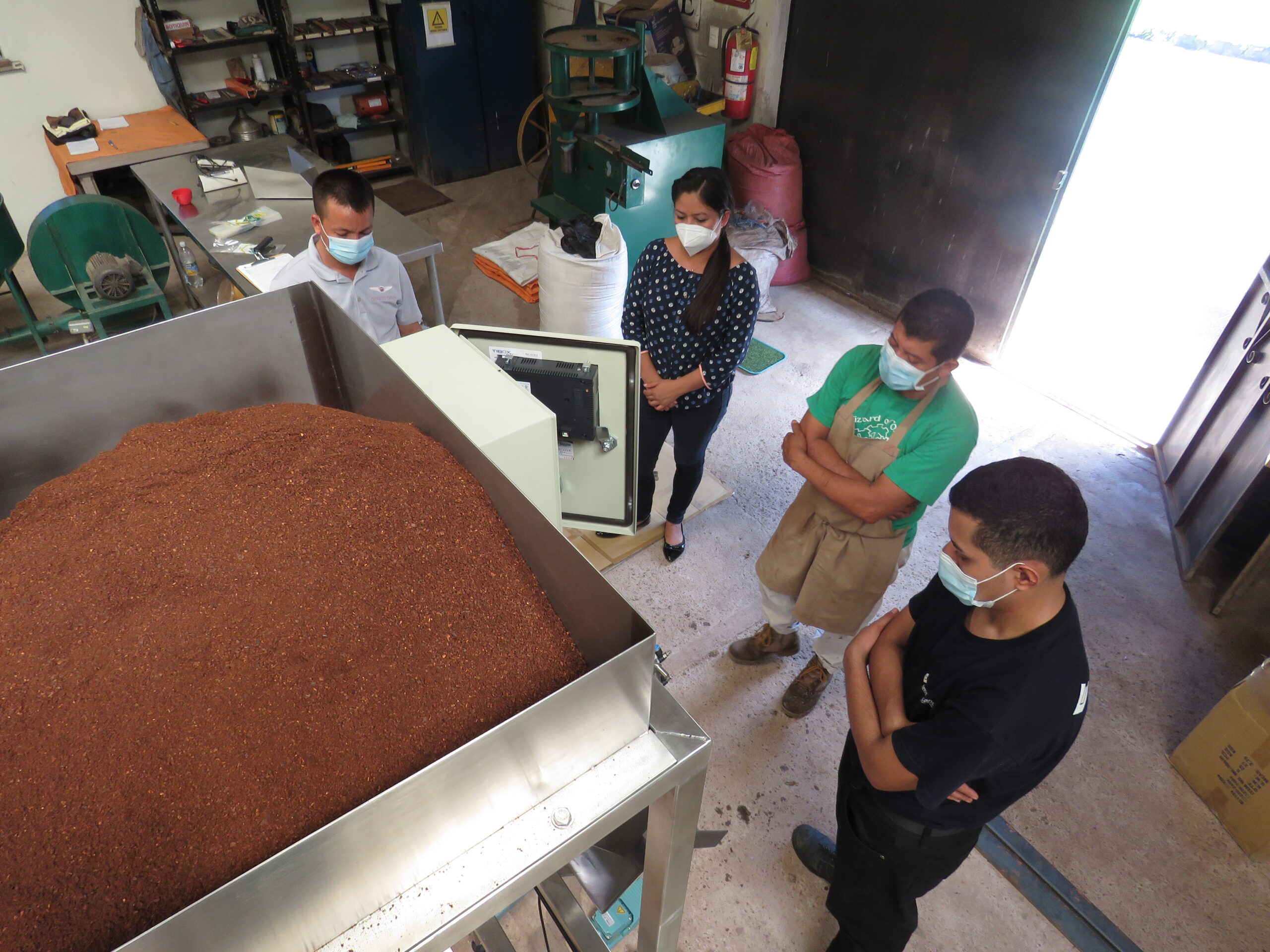The program involves the transfer of the relevant technology and the development of activities to diversify income streams, while also introducing the appropriate mechanisms to respond to threats identified in the coffee sector.

San Salvador, 19 April 2021 (IICA). The Program for Integrated Coffee Rust Management (PROCAGICA) has strengthened El Salvador’s small-scale farmers, by equipping them with techniques to produce special, high-quality coffee.
The program involves the transfer of the relevant technology and the development of activities to diversify income streams, while also introducing the appropriate mechanisms to respond to threats identified in the coffee sector.
“We are motivated by PROCAGICA’s efforts to improve our production. The technical support has demonstrated how production capacity can be boosted and costs reduced, when using the proper equipment and techniques”, said Mario Díaz, producer and legal representative of the CAFECIBA coffee grower’s cooperative (Sociedad Cooperativa de Cafetaleros de Ciudad Barrios), based in Ciudad Barrios, San Miguel, El Salvador.
“The PROCAGICA technicians have shown us which processes to improve to produce better quality coffee, recognizing that this is an integrated process. The client is certainly willing to pay for quality”, said Díaz.
PROCAGICA is being implemented by the Inter-American Institute for Cooperation on Agriculture (IICA), with the support of the European Union, and aims to improve the standard of living of rural dwellers in the coffee producing regions of Central America and the Dominican Republic.
Salvador Fuentos, a coffee farmer and CAFECIBA member, explained that, “Through the technical support provided by the program, we have been working to reinforce the knowledge of the cooperative’s producers and their families, while also considering ideas to diversify our income with elements that we have on our farms. We know that by combining efforts, we will be able to improve our coffee quality and also have the opportunity to market other products”.
PROCAGICA has provided support in areas other than basic production, striving to add value to the product produced by the small farmers, using efficient and low-cost processes, with minimal environmental impact. In this way, the program helped the coffee cooperatives to improve the dry milling process, which transforms parchment coffee into green coffee for export.
CAFECIBA has been one of the program beneficiaries, having implemented technology that allows for classification of the coffee, according to bean size. The machinery has assisted in improving processing of the product and providing producers with increased opportunities to access differentiated coffee markets, according to Norma Arias, a technical officer from the PROCAGICA Area Unit.
Moreover, program assistance has sought to strengthen producer organizations, focusing on the various links of the production chain, and working, among other things, on administration of capitalization funds, actions to monitor pests, registers and cost controls, as well as the preparation of low-cost chelated biofertilizers.
These actions aim to facilitate continuous improvement, enabling producers to constantly grow and reinvent themselves, in order to become competitive and position themselves in the market.
In the more than four years since PROCAGICA was implemented in El Salvador, the program has collaborated with and strengthened 31 coffee organizations in the districts of San Vicente, Cuscatlán, La Paz, Usulután and San Miguel.
More information:
Institutional Communication Division, IICA.
comunicacion.institucional@iica.int











